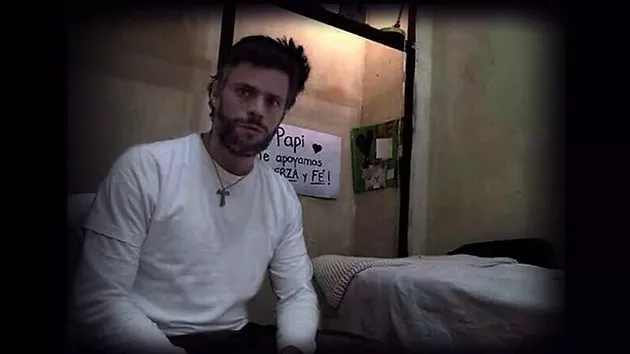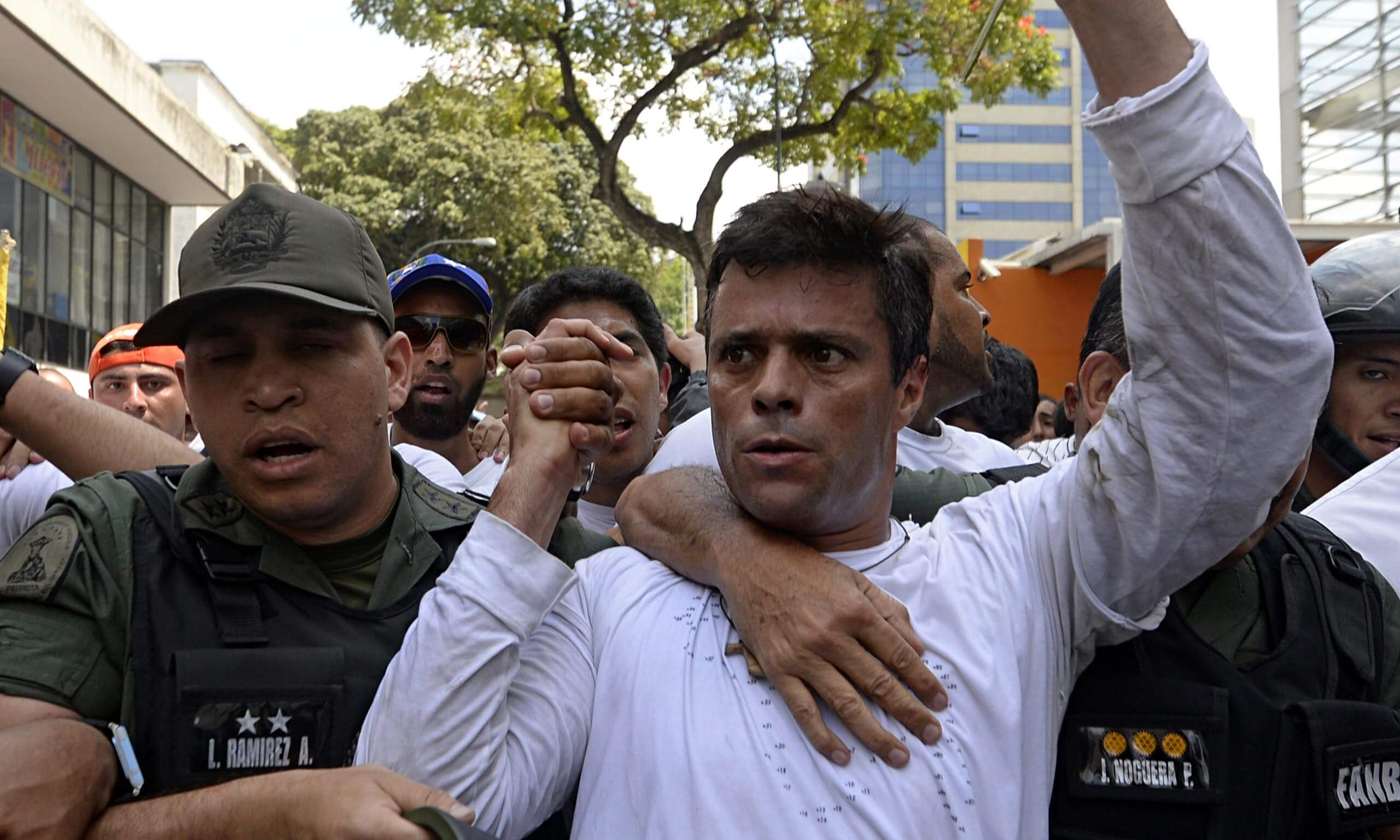The judge sentenced López to 13 years and 9 months in prison—of a maximum possible of 14 years under Venezuela’s Criminal Code—after declaring him guilty of allegedly committing the crimes of arson, damages to public property, incitement to commit a crime, and conspiracy.

López was arbitrarily detained on February 18, 2014 in Caracas, after leading massive peaceful demonstrations calling for President Nicolás Maduro to step down. In August 2014, the United Nations Working Group on Arbitrary Detention declared that the detention of López was in fact arbitrary, and ordered the Venezuelan government to release him immediately. The government ignored the UN decision.
“Today, democrats around the world are mourning for Venezuela. The judge issued the decision one would expect from the authoritarian and militaristic regime ruling Venezuela. All proof exonerating López was shamelessly disallowed by the judge, and there was little doubt that despots Nicolás Maduro and Diosdado Cabello—both faithful successors of Hugo Chávez—had the harshest penalty possible reserved for a person they officially refer to as ‘the monster of Ramo Verde,’” said Garry Kasparov, chairman of HRF. “Venezuela’s well-oiled repressive machinery has long enlisted the judiciary as the gadget in charge of rubberstamping tyranny, and is notorious for having subjected dissenting female judges to prison dungeons and even rape. Lopez’s trial has confirmed that the fundamental rights and freedoms of Venezuelans are currently suspended, and that the individual is utterly defenseless in the face of government abuses. The free world must bear witness,” added Kasparov.
The criminal proceedings against López were riddled with due process violations. The trial consisted of 70 hearings and took place behind closed doors in violation of the right to a public trial. The media, human rights defenders, and international observers were strictly banned from the courthouse. Out of 700 hours of trial, López’s legal team only had three hours to argue in his defense. In another ostensible display of disproportionality, bias, and unfair treatment in court, Judge Barreiros allowed 108 witnesses and 30 exhibits presented by the prosecution. In contrast, of the 60 witnesses proposed by the defense Barreiros allowed only two, and declared that the bulk of the documentary evidence presented by López’s legal team was inadmissible. Public statements by high-ranking government officials were made declaring López’s culpability in violation of the right to presumption of innocence.
As the criminal proceeding against him was taking place, López was held in the Ramo Verde military prison in Los Teques, Venezuela, where he was subject to torture and cruel, inhuman, and degrading treatment. López’s imprisonment in Ramo Verde was characterized by the violation of international standards on the protection of the human dignity of persons deprived of liberty. Apart from the appalling conditions of captivity and excessive isolation—López has spent at least a third of his time in prison in solitary confinement, having been denied the right to receive visitors, including, at times, his wife and children, and his lawyers—there have been numerous violent searches, and the confidentiality of his communications has been violated.
“Terms like ‘kangaroo court’ or ‘sham trial’ do not begin to describe what happened to López. A teenager with rudimentary knowledge of a fair legal system would have found the charges brought against him absurd. López wouldn’t be in jail if Venezuela were a democratic nation,” said Javier El-Hage, chief legal officer of HRF. “López now joins the group of prominent prodemocracy activists under dictatorial regimes worldwide who have been convicted to serve dozens of years in prison for advocating basic human rights. In 2009, the Chinese dictatorship jailed Nobel Peace Prize laureate Liu Xiaobo on charges of ‘inciting subversion of state power’ after he wrote a democracy manifesto, while in 2012 Kazakhstan’s authoritarian regime convicted the leader of the democratic opposition, Vladimir Kozlov, of ‘inciting social hatred.’ Kozlov, whose case is very similar to that of López, was also convicted for ‘creating and managing an organized criminal group,’ which is the label the regime gave to Kozlov’s political party, in a move very similar to the one Venezuela pursued against López’s party, Voluntad Popular,” said El-Hage.
López’s unjust arrest and incarceration were condemned by multiple institutions worldwide, including Amnesty International, the UN High Commissioner for Human Rights, and the European Parliament. HRF was the first organization to declare López a political prisoner and a prisoner of conscience, after determining that the opposition leader had been persecuted, arrested, and imprisoned exclusively for having exercised his right to freedom of expression.
The Human Rights Foundation (HRF) is a nonpartisan nonprofit organization that promotes and protects human rights globally, with a focus on closed societies.
Contact: Jamie Hancock, (212) 246-8486, [email protected]
